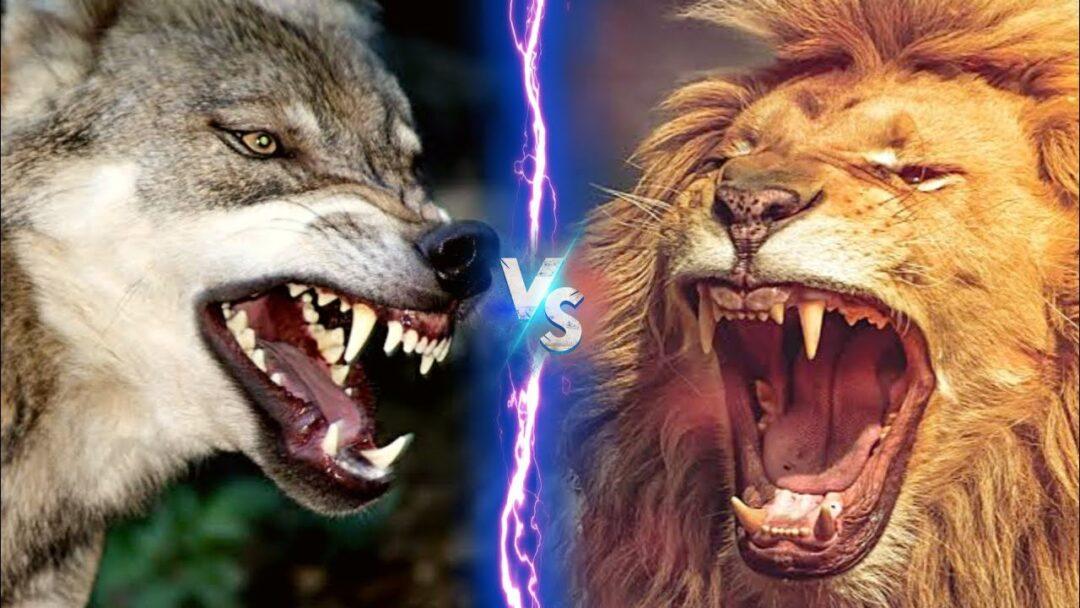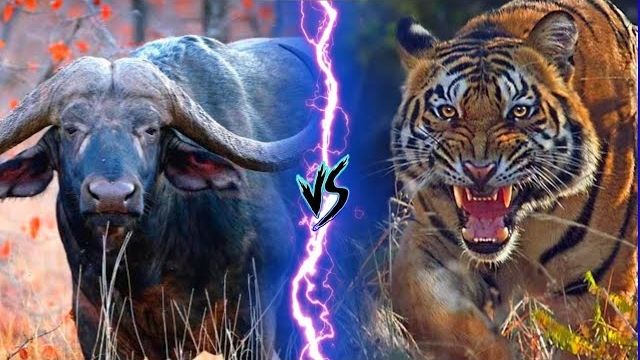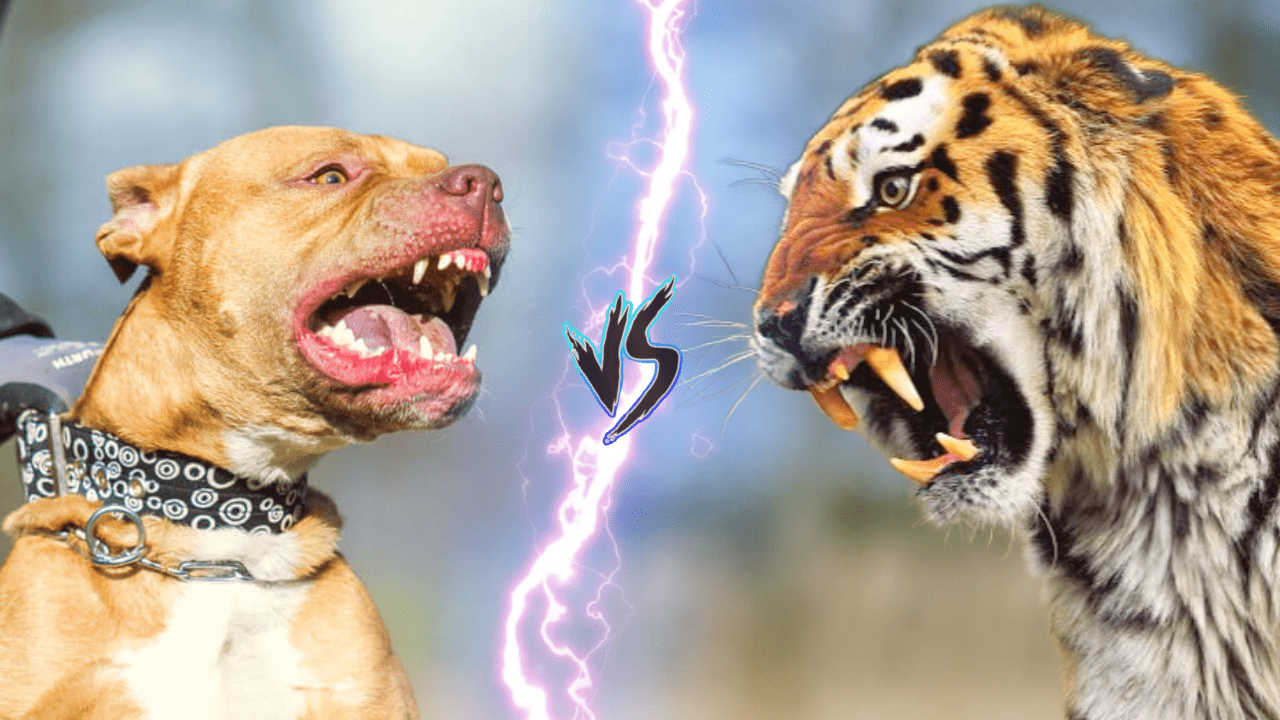Table of Contents

Introduction:
Two magnificent carnivores, the Ngandong Tiger and the American Lion, once roamed the wild landscapes in Earth’s past. One has been thoroughly documented in paleontological records, whereas the other has aroused curiosity due to claims of existence, including the elusive “black lion.” In an unprecedented journey, this article explores the traits, origins, and rumored encounters of these creatures. By doing this, we will start a fascinating investigation into a fictitious fight and analyze its ecological and evolutionary effects.
The Ngandong Tiger: A Prehistoric Enigma:
A legendary symbol of the Pleistocene era is the Ngandong Tiger (Panthera tigris soloensis). Its remains were discovered in Indonesia’s Ngandong region, and they showed a carnivore that was a little bit bigger than the Bengal Tiger of today. The Ngandong Tiger prowled the landscape with the grace of a top predator, sporting strikingly robust features and strong limbs.
The American Lion: Roar of the Past:
During the Pleistocene era, the American Lion (Panthera leo atrox) ruled North America. With a presence that was both regal and terrifying, this apex predator towered over the lion species of today. With a bone-crushing bite and a well-adapted body, it was able to establish itself as a powerful force in its environment.
Unveiling the Myth of the Black Lion:
Despite the widespread use of black lion stories in folklore and even social media, there is still no solid scientific proof. There is no conclusive evidence that black lions exist, in contrast to black tigers, which are caused by the genetic disorder melanism. Claims about these creatures are frequently the result of identification errors, poor lighting, or even photo manipulation. The difference between authentic wildlife encounters and sensationalized accounts must be made.
The Hypothetical Showdown: Ngandong Tiger vs. American Lion:
The imagination is sparked by the thought of a fight between the Ngandong Tiger and the American Lion. Speculation about the results of such an encounter is fueled by their different geographic origins and evolutionary paths. The American Lion’s sheer size and muscular prowess may be its defining characteristics, whereas the Ngandong Tiger’s robust build and familiarity with a variety of environments may give it an advantage. Hunting tactics, agility, and adaptability would all be important factors in this thrilling but unpredictable duel.
Consequences of the Clash: Ecological and Evolutionary Significance:
These apex predators’ hypothetical conflict has important ecological and evolutionary ramifications. As a result of their interactions, the equilibrium of each ecosystem would undoubtedly be shaped, with potential effects on prey populations, competitive dynamics, and even habitat structure. Understanding the complex interplay between predator-prey relationships and the long-term effects on biodiversity may be possible through an understanding of this conflict.
Frequently Asked Question (FAQ)
What is the Ngandong Tiger?
The Ngandong Tiger, scientifically known as Panthera tigris soloensis, was a subspecies of tiger that lived in Indonesia during the Pleistocene epoch. It was larger and more robust than modern tigers.
Tell me about the American Lion.
During the Pleistocene era, a large big cat known as the American Lion, Panthera leo atrox, roamed North America. Although it was larger and adapted to a different environment, it is frequently compared to the modern lion.
How did The Ngandong Tiger and the American Lion sizes compare?
The Ngandong Tiger was indeed large, perhaps on par with contemporary Siberian tigers in terms of size. Despite being similar to modern lions, the American Lion was noticeably larger; some estimates place its size at around 25% greater.
Did The Ngandong Tiger and the American Lion coexist or live in different times?
While the Ngandong Tiger lived in Indonesia between 370,000 and 70,000 years ago, the American Lion inhabited North America roughly 340,000 to 11,000 years ago. So, they existed in different regions and time periods.
What were The Ngandong Tiger and the American Lion main habitats?
The Indonesian grasslands and dense forests were likely home to the Ngandong Tiger. The American Lion lived in North America’s grasslands and open woodlands, which had an impact on their adaptations.
Did The Ngandong Tiger and the American Lion have any common features?
Both species were large carnivores with well-developed hunting claws and teeth. They probably competed with other predators in their respective regions and had social structures akin to those of modern big cats.
Were The Ngandong Tiger and the American Lion solitary hunters or lived in groups?
Both the Ngandong Tiger and the American Lion are believed to have been solitary hunters, like most big cats. However, some evidence suggests that American Lions might have exhibited some social behaviors.
How did The Ngandong Tiger and the American Lion diets differ?
The Ngandong Tiger likely hunted large herbivores, while the American Lion likely preyed on animals like bison, horses, and mammoths due to its North American habitat.
The Ngandong Tiger or the American Lion, Which one had a stronger bite?
The American Lion is generally thought to have had a stronger bite force due to its larger size and adaptations for hunting large prey.
What led to The Ngandong Tiger and the American Lion extinction?
Various factors, including changing climates and shifts in ecosystems, are believed to have contributed to the extinction of both species. Human activities and competition with other predators also played roles.
Conclusion:
The Ngandong Tiger and the American Lion stand as examples of the magnificent diversity that once adorned our planet as we explore the spheres of prehistory, myth, and scientific inquiry. While the existence of black lions continues to be a fascinating mystery, the ecological complexity of these apex predators and the potential effects of their hypothetical conflict are what really matter. Let these magnificent creatures serve as a reminder of the beauty and complexity that have shaped the tapestry of life on Earth as we continue to solve the mysteries of our planet’s distant past.





Pingback: Bengal Tiger Vs African Cape Buffalo: Who Will Win? | Animal TV Hindi